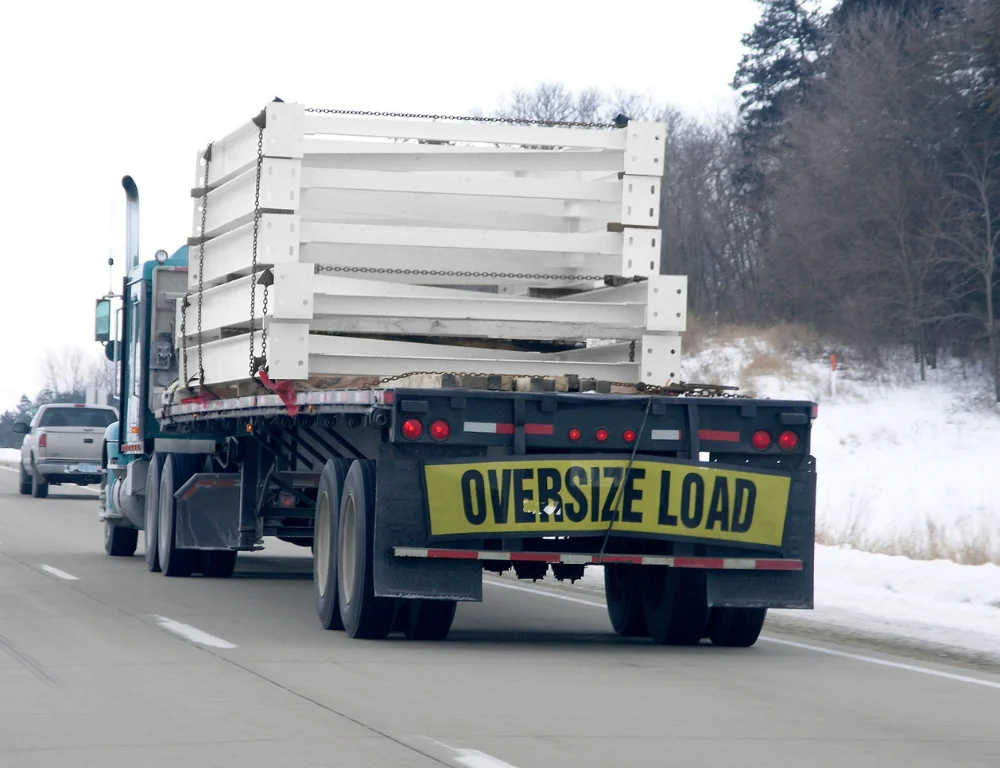Short Haul vs. Long Haul Trucking

Truck drivers are essential for delivering goods and services to businesses and customers nationwide. They’ve also gained a glamorous image for themselves. When people think of truck driving, they usually think of trucks hurtling down highways, blowing their loud horns, and resting at truck stops in zig-zagged lines.
But those kinds of trucks, called long haul trucks, aren’t the only type of trucking. Some trucks cover shorter distances. This type of trucking, short haul trucking, is just as crucial for the supply chain as long haul trucking. They deliver their goods to businesses and customers locally and regionally, typically on a 9 to 5 schedule.
While similar in some ways, short and long haul trucking have key differences that set them apart.
What is Short Haul?

Short haul freight trucking is a type of road delivery primarily focusing on local and regional areas typically within 150 miles or less from their home base. This proximity to home allows drivers to become intimately familiar with the area, often memorizing their routes over time.
Short haul drivers handle a variety of loads and deliveries, driving regular-sized semi-trucks or smaller vehicles. They transport anything from small LTL packages to full, heavy truckloads and deliver to diverse locations such as grocery stores, retail stores, construction sites, and fulfillment centers.
Short haul drivers work in shifts, performing safety checks before driving for several hours to deliver freight. Most finish by the end of the day and can return home, but some may have to stay at a hotel occasionally.
What is Long Haul?

Long haul freight trucking, also known as “over-the-road” trucking, is another type of road delivery that covers vast distances across multiple states and even countries. Drivers typically drive about 250 miles from their home base, but many drivers cover around 1,000 to 2,000 miles per job.
Long haul trucks are designed to carry heavier, specialized loads such as bulk goods, meaning they only have to pick up and deliver one load per job. They primarily operate on highways and travel to various locations across the country. Due to their long distances, long haul drivers may spend days or weeks away from home to make their deliveries.
There are two types of long haul drivers: company drivers and independent owner-operators. Company drivers work for a carrier and obtain jobs through their employer, while independent owner-operators either work alone or under contract with a carrier and nab jobs through a marketplace.
Short Haul vs. Long Haul
Both types of freight trucking are similar to each other in several ways. Both types are responsible for the following:
- Loading, delivering, and unloading goods
- Obeying traffic laws wherever they travel to
- Performing safety inspections on their trucks before, during, and after deliveries
- Doing basic maintenance on their trucks
- Stopping for fuel and rest every couple of hours
- Perform data entry to optimize their routes
- Obtaining a CDL to operate a vehicle
- Preparing and making snap decisions during emergencies like natural disasters and vehicle malfunctions

They both experience the same phenomenon: loneliness and sedentariness. Truckers spend hours alone driving down roads with little rest so they may experience sleep deprivation and long-term isolation while on the road. There are solutions, however—drivers can work in teams with a partner or spouse (one sleeps while the other drives) or keep pets like cats and dogs in their trucks.
However, while short and long haul trucking share similarities, they also have fundamental differences.
Operations and Schedules
Both types of drivers use GPS tracking systems attached to their trucks to optimize the fastest, most efficient routes. However, short haul drivers heavily rely on route optimization, as most of their jobs must be completed within a day or two. These tight schedules also conflict with the many required stops they must make for deliveries and breaks along the way.
While long hauls are also on strict schedules, carriers have a little more leniency since they need to cover long distances between the pickup and delivery points. Both company and independent drivers can only drive 11 hours in a 24-hour day, though if a driver is an owner-operator, they must schedule their own deliveries and breaks.
Time from Home
Short haul drivers work an 8-12 hour schedule. They can go home after work and also get weekends and holidays off. Some short haul drivers have to spend a night or two away from home, but those are rare occasions. For the most part, short haul drivers can be with their families more often, which reduces fatigue while on the road.
Long haul drivers, however, may go weeks without going home. Some drivers don’t even own homes; they live out of their trucks 24/7 and use P.O. boxes as their home addresses. They often work nights, weekends, and holidays, taking time off if their employer allows it or if they give themselves one if they work independently. Therefore, they’re at a greater for fatigue on the road.
Driver Salary
Short haul drivers receive lower pay than long haul drivers because they are employed locally. They are not paid for any stops during their trips; they are only compensated for the hours the truck is in motion. However, they have lower expenses because they do not have to spend as much on fuel and meals as long haul drivers.
Long haul drivers typically earn more than short-haul drivers because they cover longer distances. Their average salary varies based on experience and employment type, whether as company drivers or owner-operators. They must also keep track of their service hours to get paid. However, long haul drivers tend to have higher expenses than short-haul drivers due to the extensive fuel usage and the need for meals and rest.
Other Challenges
Aside from the isolation the job brings, truck drivers face other issues. Short haul drivers make frequent delivery stops, where they have to load, drive, and unload quickly. This can become tiresome, especially if they repeatedly drive the same, predictable routes. They also interact more with customers, which comes with its difficulties.
Long haul drivers, especially owner-operators, have to search for their next job, which can be difficult when loads aren’t always high-paying or top-quality. Fuel costs and vehicle maintenance are also problematic since drivers must pay for fuel out of their pockets and carve time out of their schedules to fix their trucks.

FreightCenter’s Commitment to Short and Long Haul Trucking Success
Short and long haul trucking are indispensable in the logistics and supply chains. Short haul trucking offers the advantage of predictable schedules, regular home time, and intimate knowledge of local routes, making it an attractive option for drivers who prefer a stable lifestyle. On the other hand, long haul trucking appeals to those who seek higher pay, the adventure of cross-country travel, and the independence that comes with extended trips on the road. Despite their differences, both types of trucking demand a high level of skill, dedication, and resilience from drivers.
At FreightCenter, we understand the unique challenges and opportunities associated with short and long haul trucking. We are partnered with both local and national carriers and individual long haul drivers. Our comprehensive logistics solutions are designed to support carriers and drivers across all distances, ensuring efficient and reliable freight transportation.
Whether you’re a shipper looking for the best way to move your goods or a driver seeking the next great opportunity, FreightCenter is here to connect you with the resources and support you need. Trust us to be your partner in navigating the complexities of the trucking industry, helping you drive your business forward.
Call us at (800) 716-7608 or try our free online quote tool to get started today!
Oh, here’s a comparison chart between short and long haul trucking to use!


